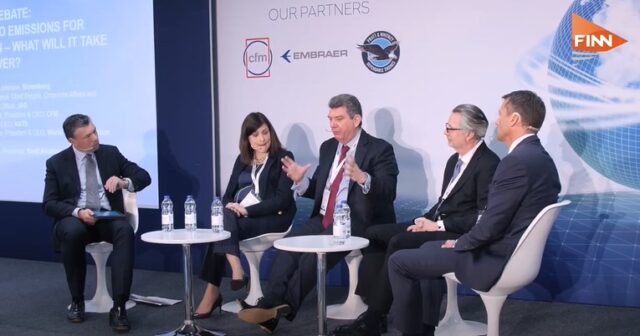Thales Alenia Space workshop aims to inspire next generation of engineers
Engineers from Thales Alenia Space in the UK ran a workshop with primary school students in Gloucestershire aiming to inspire children to learn more about space travel and life on…

Engineers from Thales Alenia Space in the UK ran a workshop with primary school students in Gloucestershire aiming to inspire children to learn more about space travel and life on the red planet.
The workshop, part of the 2023 MARSBalloon project, first launched in 2015, applied a hands-on approach, showing students how exciting and diverse a career in science, technology, and engineering can be, as they worked collaboratively and engaged in scientific thinking to design experiments to be flown on the high-altitude MARSBalloon.
Experiments that tested the students’ ideas for technologies that could one day be destined for Mars.
Future-proofing with science
Andy Green, the school’s head teacher, said: “The very nature of space means there’s so many wonderful big questions and children are naturally curious, so when we engage our young children with scientific subjects we’re almost future-proofing them. This will be one of the days that, when they’re older, they’ll look back on with big smiles.”
At the end of June, Thales Alenia Space launched over 200 experiments to 30km above sea level – more than twice the cruising height of commercial airliners – where they experienced conditions very similar to Mars’ surface including -50°C temperatures, pressures 1/100 less than on Earth, and double our planet’s ultraviolet radiation.
The balloon then burst, and after descending to Earth via parachute, the experiments were collected and will be returned to schools for students to analyse the results.
Thales MARSBalloon project
The MARSBalloon is a project for school students and science clubs to carry out Mars-analogue science experiments without having to put on a spacesuit!
The balloon will carry over 150 student experiments to an altitude of 30km, more than twice the height of commercial airliners, where they will be above 99% of Earth’s atmosphere. Along the way they will experience conditions very similar to the surface of Mars including temperatures of -50°C, pressures 1/100th that of sea level and an increased radiation dose.
This allows students to test the response of electronics, materials, plants and even food to the conditions outside of a future Mars base, helping future explorers to prepare for this strange and hostile environment.
The whole flight lasts approximately four hours and the MARSBalloon team will chase after the balloon to recover the experiments after landing, allowing them to be returned to the students for analysis.Subscribe to the FINN weekly newsletter
















